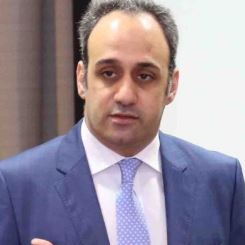
Hanna Jabbour
The CEO of ISO 14001 registrar Bureau Veritas’ Saudi Arabian office has written to Oxebridge asserting that it has completed an internal investigation into complaints that it offered consulting service prohibited by its accreditation rules.
Oxebridge reported on the scandal in December of 2016, when it uncovered a contract between BV Saudi Arabia and a client to whom BV sold ISO 14001 and other management system documentation preparation services. Under accreditation rules ISO 17021-1, a registrar is prohibited from offering “management system consultancy,” which is defined as including preparation of documentation. Making matters worse, the BV contract included a clause that appeared to be designed to protect the contract’s secrecy, prohibiting the client from revealing the contract to “any third party including consultant(s).”
Oxebridge filed an email complaint which was immediately picked up by US-based accreditation body ANAB, who claimed to have launched an investigation. However, it was shortly discovered that ANAB likely has no authority over the Saudi office of BV, and that this was instead overseen by the British AB, UKAS. For its part, UKAS remained silent on any investigations, until it was announced by BV’s Saudi CEO, Hannah Jabbour, that BV was conducting its own internal investigation.
Today, Mr. Jabbour wrote the following to Oxebridge:
Thanks for raising subject concern to us.
An internal investigation has been carried out and corrective actions have been defined and implemented at BV Saudi Arabia level and anywhere else in BV Network where needed.
At the same time, we kindly ask you to remove the contract from your website in order to comply with intellectual property rights.
The letter included no evidence at all, no explanation of the corrective actions taken, and no root cause analysis. Oxebridge has rejected the response, and is negotiating with BV for the release of evidence to prove the issue was corrected. Oxebridge maintains that BV can provide sufficient evidence of the root cause and corrective actions without revealing any confidential information of itself or its clients.
Mr. Jabbour was an listed approver of the contract in question, so should have recused himself; it’s not clear if he did so.
Oxebridge did not publish “the contract,” but only two images of two paragraphs.
Neither UKAS nor ANAB offered an explanation as to how they did not discover the contract during normal accreditation audits of BV.
It is customary, although Oxebridge maintains wholly unacceptable, that CBs simply close official complaints without evidence of having done anything, often with the blessing of their Accreditation Bodies. A major complaint file against registrar LRQA, which revealed that it had awarded an ISO 9001 certificate to a company that it knew was circulating counterfeit certificates in order to fraudulently gain access to a lucrative oil contract, was similarly closed without any evidence. That decision was then signed off by UKAS as well, effectively burying the scandal.
Oxebridge has reported that due to the financial structure of the ISO certification scheme, wherein registrars pay Accreditation Bodies, it becomes impossible for the ABs to properly protect the public and industry from malpractice and corporate malfeasance perpetrated by certification bodies. Oxebridge is calling on national governments to launch investigations into the scheme, and to remove ISO certification requirements from government contracts until the problems are resolved.








